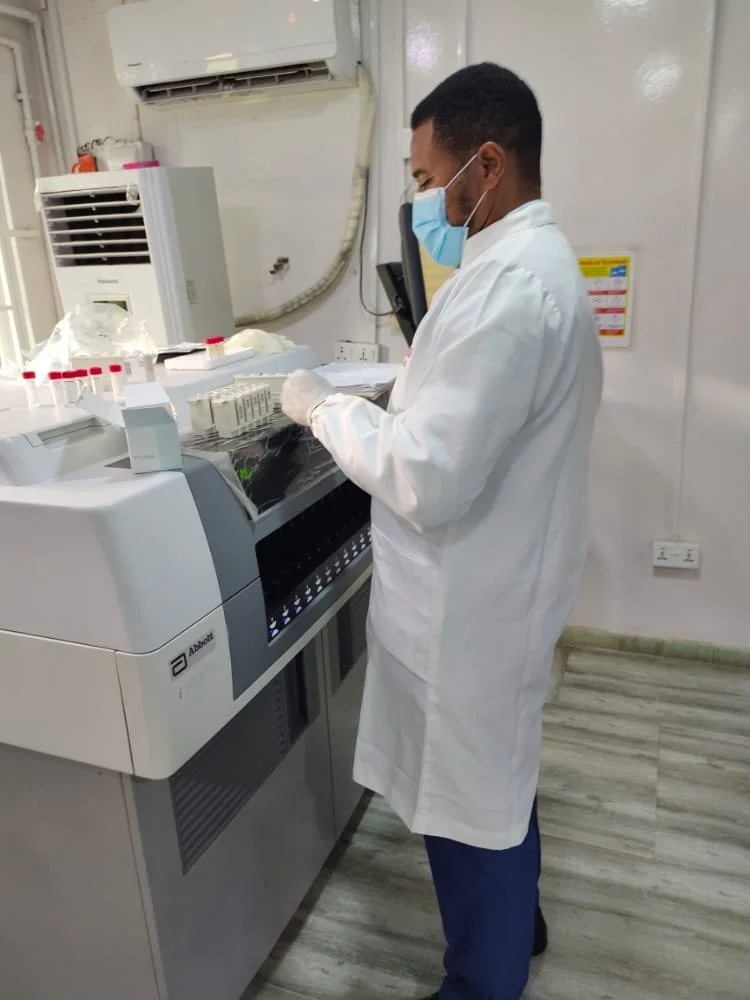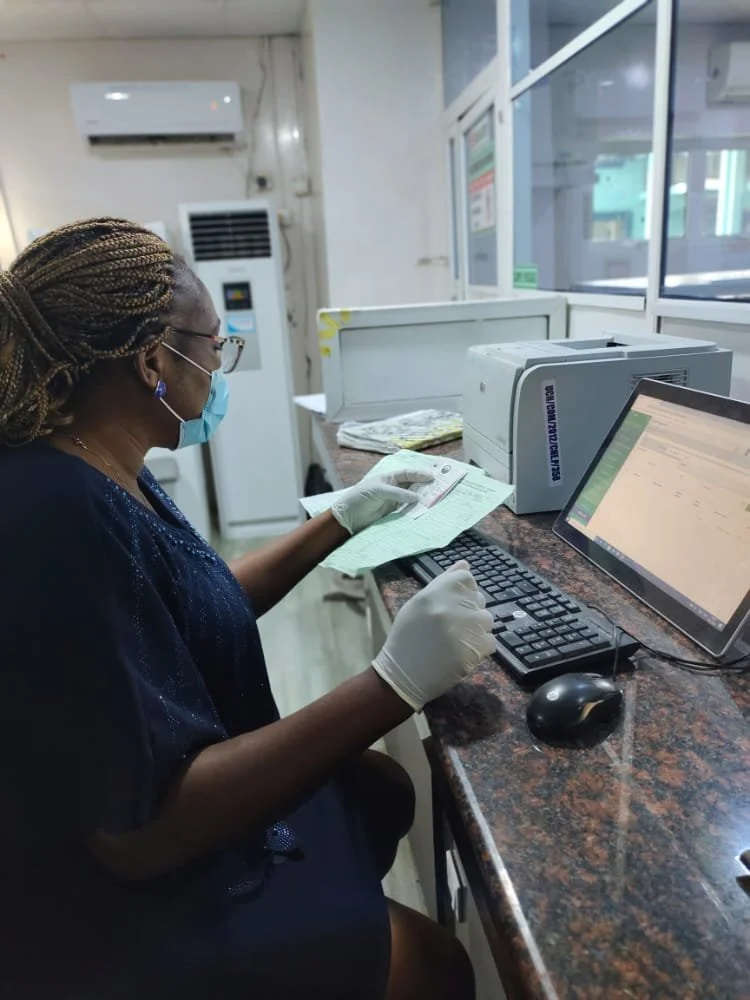Chemical Pathology Laboratory at University College Hospital, Ibadan, Nigeria
This spotlight was hosted by the Chemical Pathology Laboratory Quality Manager, Olufisayo Famuyiwa.
What services do you currently provide in your lab (e.g. histology, special stains, cytology, bone marrows, IHC)?
A: The Chemical Pathology Laboratory is one of the diagnostic laboratories at University College Hospital. The hospital is a federal teaching hospital in Ibadan, Nigeria, and it is attached to the University of Ibadan. The laboratory provides routine laboratory services to clients from within and outside the hospital. Diagnostic services provided by the laboratory include:
Routine General Chemistry including kidney function tests, liver function tests, lipid studies, diabetes studies, bone studies, cardiac markers, and others
Immunology assays including immunoglobulins, complement factors, C- reactive protein, and others
Endocrinology studies including thyroid function tests, thyroid antibodies, reproductive hormone studies, tumour markers, and others
Infectious Diseases including hepatitis B profile, hepatitis C profile, and other infectious diseases
Other Chemistry tests including therapeutic drug monitoring and drugs of abuse
The laboratory has also been of tremendous help in assisting researchers with the laboratory analysis of their work.
What is your current case volume and do you anticipate growth in this volume over the next year? Or next 5 years?
A: Our volume is roughly 3000 samples per month. Approximately 2300 samples are for general chemistry and the rest are mostly endocrine testing with fewer numbers for the testing listed above.
Hormone Testing Section
What is the patient population at your hospital?
A: University College Hospital (UCH) has a bed count of 1000 and examination couches of 200 with occupancy rates ranging from 65-70%. As a tertiary hospital, UCH has a lot of referrals from both the primary and secondary health centers.
Who is the lab director and how is the lab organized?
A: The Laboratory Manager or Unit head supervises the technical staff and reports to the Laboratory Director.
How many pathologists do you have on staff?
A: The department has seven pathologists who report directly to the Head of Department.
General Lab Section
Can you describe your quality management processes?
A: Our laboratory has established a Quality Management System (QMS), and the plan is ongoing towards meeting and sustaining the requirements of ISO15189:2012. The Laboratory has a Quality Manager and other staff in charge of each section of the QMS using the World Health Organization Checklist towards accreditation.
What are your three main challenges?
A: The challenges are:
Lack of proper mentorship on the implementation of QMS in the laboratory
Getting enough funding to sustain the QMS
Having enough training for the technical staff
Funding and support for accreditation
What are your biggest success stories?
A:
The introduction of a Laboratory Information System into our operations which has made the reporting system much easier and less prone to errors. This has also enhanced proper information management in our system
The introduction of a new state of the art auto-analyser which has made the laboratory work more interesting and fulfilling for the technical staff. This has also led to patients benefiting from this state-of-the-art system.
Recent renovation of the laboratory
LIS Section
Are you working toward accreditation? If so which accreditation body?
A: Yes, we are working towards accreditation, but we have not settled on a specific accrediting body. We are looking forward to help and support in this regard from interested parties.



